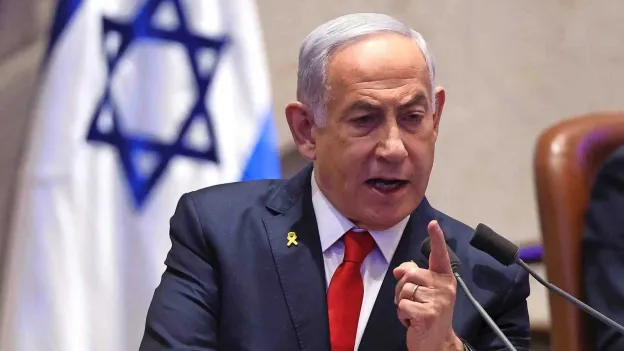Consequences of Arrest Warrant: Israel Deeper in Isolation

2
World
November 21, 2024 15:20
tel aviv - The recent arrest warrants issued by the International Criminal Court have placed Israel under further scrutiny, leading to concerns of increased isolation on the international stage.
The recent arrest warrants issued by the International Criminal Court have put Israeli Prime Minister Benjamin Netanyahu and former Defense Minister Benny Gantz in a difficult position. These warrants prevent them from traveling to 123 countries that have ratified the Rome Statute, including many European nations, as they could be arrested upon arrival. This marks the first time that such arrest warrants have been issued against leaders of a democratic country. The situation has also raised questions about Israel's international standing and its ability to engage with other nations.
Israeli officials have long maintained that their judicial system is independent and capable of addressing any allegations of criminal activities internally. However, the arrest warrants from the ICC have challenged this assertion, highlighting the potential implications of Israel's non-ratification of the Rome Statute. The news of the arrest warrants coincided with Prime Minister Netanyahu's discussions with the US envoy for Lebanon regarding a possible ceasefire with Hezbollah, adding complexity to the diplomatic landscape.
The arrest warrants are based on allegations of war crimes and crimes against humanity committed in Gaza, with the ICC claiming jurisdiction due to Palestine's status as a party to the court. The charges include acts such as starvation as a weapon of war and widespread attacks on the civilian population of Gaza. These accusations have drawn international attention and further intensified the scrutiny on Israel's actions in the region.
In response to the arrest warrants, Israeli officials have criticized the ICC's jurisdiction and accused the court of bias and antisemitism. The United States, which also does not recognize the ICC's authority, may provide a safe haven for Netanyahu and Gallant, despite the limitations imposed by the arrest warrants. Nevertheless, the development is likely to isolate Israel further in the international community and could impact diplomatic engagements with European leaders.
Meanwhile, Israel continues to face criticism for its handling of humanitarian aid to Gaza, with allegations of deliberate restrictions on vital supplies to the civilian population. The ICC's focus on Israel's actions during the early stages of the conflict underscores the gravity of the allegations and raises questions about the country's compliance with international humanitarian law.
As the legal proceedings unfold, Israel remains under scrutiny on multiple fronts, including a separate case at the International Court of Justice in The Hague where it faces accusations of genocide from South Africa. The ongoing legal challenges pose significant challenges for Israel's international standing and could have far-reaching implications for its diplomatic relations.